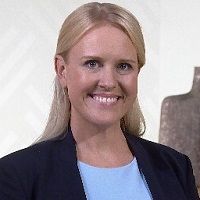Four Tips to Keep Your Wealth Transfer on Track
Incorporating family legacy planning into your financial plan is crucial to ensure the next generation knows how to serve as good stewards of the family’s wealth.


Profit and prosper with the best of Kiplinger's advice on investing, taxes, retirement, personal finance and much more. Delivered daily. Enter your email in the box and click Sign Me Up.
You are now subscribed
Your newsletter sign-up was successful
Want to add more newsletters?

Delivered daily
Kiplinger Today
Profit and prosper with the best of Kiplinger's advice on investing, taxes, retirement, personal finance and much more delivered daily. Smart money moves start here.

Sent five days a week
Kiplinger A Step Ahead
Get practical help to make better financial decisions in your everyday life, from spending to savings on top deals.

Delivered daily
Kiplinger Closing Bell
Get today's biggest financial and investing headlines delivered to your inbox every day the U.S. stock market is open.

Sent twice a week
Kiplinger Adviser Intel
Financial pros across the country share best practices and fresh tactics to preserve and grow your wealth.

Delivered weekly
Kiplinger Tax Tips
Trim your federal and state tax bills with practical tax-planning and tax-cutting strategies.

Sent twice a week
Kiplinger Retirement Tips
Your twice-a-week guide to planning and enjoying a financially secure and richly rewarding retirement

Sent bimonthly.
Kiplinger Adviser Angle
Insights for advisers, wealth managers and other financial professionals.

Sent twice a week
Kiplinger Investing Weekly
Your twice-a-week roundup of promising stocks, funds, companies and industries you should consider, ones you should avoid, and why.

Sent weekly for six weeks
Kiplinger Invest for Retirement
Your step-by-step six-part series on how to invest for retirement, from devising a successful strategy to exactly which investments to choose.
The Great Wealth Transfer is under way, and an estimated $84 trillion will change hands in the U.S. by 2045 as wealth accumulated by the Silent Generation and Baby Boomers makes its way to the next generations, according to Cerulli Research Group.
Studies show that successful multigenerational wealth transfer is easier said than done. In fact, 90%of affluent families see their wealth dissipate by the third generation, according to a study by The Williams Group. With this in mind, it is imperative for investors to consider the proactive measures they can implement today to defy this trend.
When preparing for a multigenerational wealth transfer, there are three foundational steps to address:
From just $107.88 $24.99 for Kiplinger Personal Finance
Become a smarter, better informed investor. Subscribe from just $107.88 $24.99, plus get up to 4 Special Issues

Sign up for Kiplinger’s Free Newsletters
Profit and prosper with the best of expert advice on investing, taxes, retirement, personal finance and more - straight to your e-mail.
Profit and prosper with the best of expert advice - straight to your e-mail.
- Collaborating with advisers to establish a sound financial plan.
- Partnering with attorneys to draft a comprehensive estate plan.
- Collecting and organizing crucial information — such as trust documents, account statements, etc. — all in one centralized location. There are resources available online to help families document their complete financial inventory.
While these initial steps are absolutely necessary, there is another component that is arguably even more important — family legacy planning. Often dubbed as the “softer side” of wealth management, it's an aspect that is sometimes overlooked, yet it may hold the key to long-term success. Surprisingly, the breakdown of wealth transfer is seldom due to inadequate financial planning or tax and legal complexities, according to The Heritage Institute and the book Entrusted by Andrew Howell and David York. Instead, the primary cause of unsuccessful outcomes lies in a lack of communication and trust.
We believe there is a burgeoning area in wealth management dedicated to family legacy planning. It is not surprising that with an aging population, an increasing number of financial professionals are opting to specialize in this field. We have identified four key strategies:
1. Openly communicating
Open and clear communication within the family is the cornerstone of a successful multigenerational wealth transfer. While this might seem basic, it is surprising how many families avoid these conversations.
Discussing your estate and financial plans with your loved ones helps align everyone's expectations and ensures they understand your intentions. Sharing the “why” of your estate is as important as the “what,” as this approach fosters trust, reduces the potential for disputes and empowers the next generation to be responsible stewards of the family's wealth.
2. Having regular family meetings
Family meetings serve as a crucial platform for open and constructive communication within the family. They provide a structured environment where family members can come together in a way that promotes transparency, alignment of goals and the nurturing of shared values.
A typical family meeting might include obvious topics — such as updates on the family’s estate plan and discussions about investment strategies — as well as unexpected topics like philanthropic goals, drafting a family mission statement, capturing family history and investment education for the rising generation.
It is also an opportunity for every family member to voice their thoughts, ask questions and contribute to the decision-making process. This structured approach ensures that everyone is on the same page and helps forge a unified path toward realizing the family's mission and preserving its legacy.
3. Creating a family mission statement
A mission statement is a short summary of what matters most to you as a family, the principles that guide you. Creating a mission statement together is a powerful way to reflect upon your values as a family and gives everyone a clear understanding of what you stand for and expect of each other.
Having a shared vision — a clear purpose, values and goals — provides a roadmap that lays out where you are headed as a family and how you will get there. It provides a clear framework and set of expectations to follow based upon your agreed-upon values and beliefs.
4. Building financial acumen
Financial education is crucial for the next generation. It empowers them with the knowledge and confidence to handle inherited wealth. This ensures they can make informed investment decisions and contribute to preserving and growing the family's assets, aligning with the family's values and goals.
With financial literacy, they are better prepared to navigate the complexities of wealth, ensuring a successful and responsible wealth transfer.
Putting it all together
Transferring wealth from one generation to the next can be challenging, but taking the time to help your family prepare for what’s ahead creates the best chance for success. Family legacy planning is an ongoing effort, not a one-time task. Embrace the journey, and with each step, you'll further solidify your family's financial legacy and discover the meaning of true “wealth” in a family.
Related Content
- Gen X Should Prepare Now for the Great Wealth Transfer
- Your Home Would Be a Terrible Inheritance for Your Kids
- How to Prepare for Upcoming Estate Tax Law Changes
- Uncertain Times Call for Creative Estate Planning Strategies
- IRS Quietly Changed the Rules on Your Children’s Inheritance
Profit and prosper with the best of Kiplinger's advice on investing, taxes, retirement, personal finance and much more. Delivered daily. Enter your email in the box and click Sign Me Up.

Krysta Dos Santos, CFP, is Head of Financial Planning at GenTrust. Krysta works to understand each client’s financial situation and then designs a customized plan to help them attain those targets they wish to achieve. She has a holistic approach that takes into consideration a variety of wealth management topics such as estate planning, tax strategies, philanthropic giving, risk mitigation, cash flow management, education funding and family legacy planning.
-
 Quiz: Do You Know How to Avoid the "Medigap Trap?"
Quiz: Do You Know How to Avoid the "Medigap Trap?"Quiz Test your basic knowledge of the "Medigap Trap" in our quick quiz.
-
 5 Top Tax-Efficient Mutual Funds for Smarter Investing
5 Top Tax-Efficient Mutual Funds for Smarter InvestingMutual funds are many things, but "tax-friendly" usually isn't one of them. These are the exceptions.
-
 AI Sparks Existential Crisis for Software Stocks
AI Sparks Existential Crisis for Software StocksThe Kiplinger Letter Fears that SaaS subscription software could be rendered obsolete by artificial intelligence make investors jittery.
-
 Social Security Break-Even Math Is Helpful, But Don't Let It Dictate When You'll File
Social Security Break-Even Math Is Helpful, But Don't Let It Dictate When You'll FileYour Social Security break-even age tells you how long you'd need to live for delaying to pay off, but shouldn't be the sole basis for deciding when to claim.
-
 I'm an Opportunity Zone Pro: This Is How to Deliver Roth-Like Tax-Free Growth (Without Contribution Limits)
I'm an Opportunity Zone Pro: This Is How to Deliver Roth-Like Tax-Free Growth (Without Contribution Limits)Investors who combine Roth IRAs, the gold standard of tax-free savings, with qualified opportunity funds could enjoy decades of tax-free growth.
-
 One of the Most Powerful Wealth-Building Moves a Woman Can Make: A Midcareer Pivot
One of the Most Powerful Wealth-Building Moves a Woman Can Make: A Midcareer PivotIf it feels like you can't sustain what you're doing for the next 20 years, it's time for an honest look at what's draining you and what energizes you.
-
 I'm a Wealth Adviser Obsessed With Mahjong: Here Are 8 Ways It Can Teach Us How to Manage Our Money
I'm a Wealth Adviser Obsessed With Mahjong: Here Are 8 Ways It Can Teach Us How to Manage Our MoneyThis increasingly popular Chinese game can teach us not only how to help manage our money but also how important it is to connect with other people.
-
 Looking for a Financial Book That Won't Put Your Young Adult to Sleep? This One Makes 'Cents'
Looking for a Financial Book That Won't Put Your Young Adult to Sleep? This One Makes 'Cents'"Wealth Your Way" by Cosmo DeStefano offers a highly accessible guide for young adults and their parents on building wealth through simple, consistent habits.
-
 Global Uncertainty Has Investors Running Scared: This Is How Advisers Can Reassure Them
Global Uncertainty Has Investors Running Scared: This Is How Advisers Can Reassure ThemHow can advisers reassure clients nervous about their plans in an increasingly complex and rapidly changing world? This conversational framework provides the key.
-
 I'm a Real Estate Investing Pro: This Is How to Use 1031 Exchanges to Scale Up Your Real Estate Empire
I'm a Real Estate Investing Pro: This Is How to Use 1031 Exchanges to Scale Up Your Real Estate EmpireSmall rental properties can be excellent investments, but you can use 1031 exchanges to transition to commercial real estate for bigger wealth-building.
-
 Should You Jump on the Roth Conversion Bandwagon? A Financial Adviser Weighs In
Should You Jump on the Roth Conversion Bandwagon? A Financial Adviser Weighs InRoth conversions are all the rage, but what works well for one household can cause financial strain for another. This is what you should consider before moving ahead.